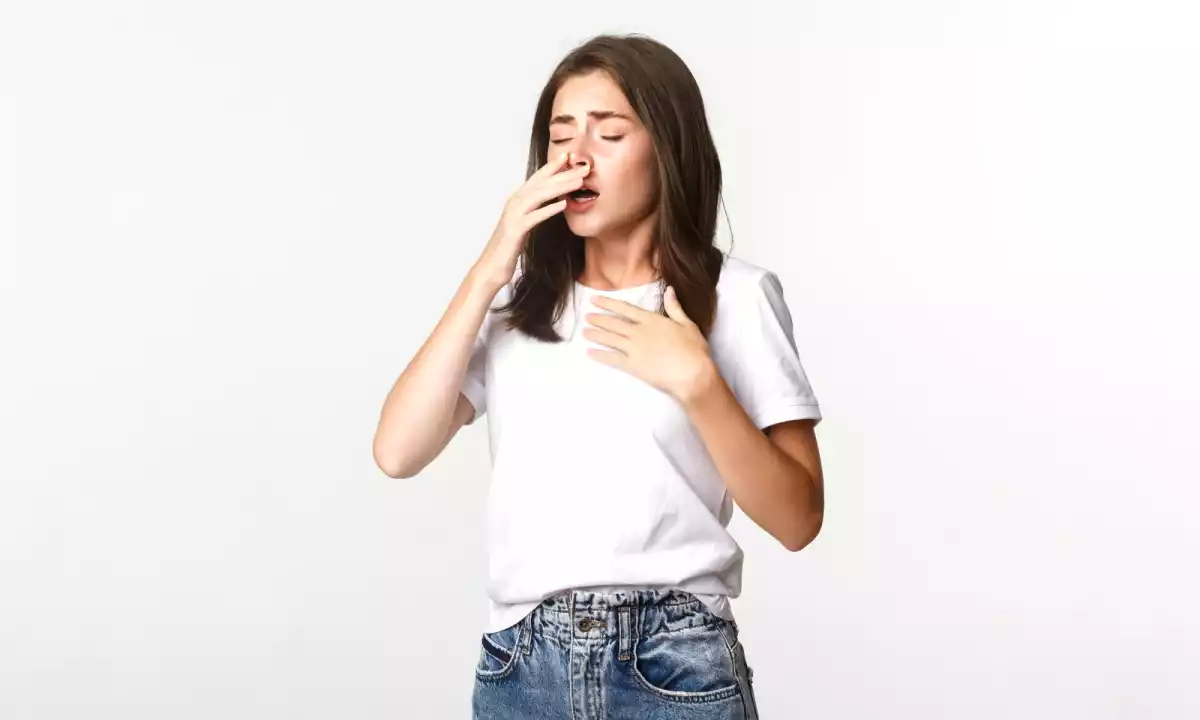Hunger and sneezing: is there really a link? Science answers

Have you ever felt like sneezing just as you were about to eat or when hunger was getting to you more than usual? If the answer is yes, you are not alone. Although it may seem like a simple coincidence, several signs suggest that there may be a connection between sneezing and hunger.
In this article we will look at the main hypotheses that explain this phenomenon, taking a little trip through cranial nerves, involuntary reflexes, and some interesting scientific anecdotes.
The role of the vagus nerve: a possible connection
One of the most fascinating explanations involves the vagus nerve, one of the main neuronal "highways" that connects the brain with many internal organs, including:
- stomach
- intestines
- heart
- lungs
- larynx and respiratory tract
The vagus nerve regulates both digestion and heartbeat, but it is also involved in the sneezing reflex. According to some theories, when the stomach sends hunger signals, there may be an overlap with those of sneezing. This "cross-talk" between nerves could explain why some people sneeze when they are hungry. A fascinating theory with solid neurophysiological basis, although scientific confirmation is still needed.
Increased sensitivity and dehydration: other factors at play
Another possible explanation concerns the way the body reacts under conditions of prolonged hunger. When we have not eaten for hours, we may become more sensitive to stimuli that we would not normally have noticed (these include minor nasal irritations).
In addition, hunger is often accompanied by poor hydration, especially if we skip a meal or drink less during the day. Dehydration can dry out the nasal mucous membranes and make them more reactive, increasing the likelihood of sneezing.
In summary, hunger can increase:
- the reactivity of the autonomic nervous system
- the sensitivity of the nasal mucous membranes
- the frequency of involuntary reflexes (such as sneezing).
Strange but real reflections: you are not alone!
It would not be the first time that a "strange" reflection has attracted the attention of science. Here are two well-known examples:
- Photic sneezing (or ACHOO reflex): some people sneeze when they abruptly switch from dim light to bright light, such as sunlight. It happens to about 10-35% of the population.
- Postprandial sneezing: less well known, but real. Some people sneeze immediately after eating, even without allergies or irritation.
These cases show us that the human body can surprise us with out-of-the-ordinary reflexes and reactions.
Coincidence or reality? What science says today
To date, there are no conclusive scientific studies confirming a direct link between hunger and sneezing. However, the topic is still under-explored, and may become the subject of future research. Some neurophysiological clues and anecdotal data leave room for new hypotheses.
According to a review by the National Institutes of Health, the vagus nerve actually has complex connections between the gastrointestinal and respiratory systems, which could explain certain cross-reflexes.
What can you do if this happens to you?
If you notice that you sneeze when you are hungry, try these simple steps:
- Drink a glass of water to keep your nasal mucous membranes hydrated
- Treat yourself to a light snack to quell the feeling of hunger
- Note down when it happens-it may help you figure out if it is a recurring pattern
Conclusion: your body talks to you, even with a sneeze
The link between sneezing and hunger might seem curious, but it reflects how interconnected the human body is. Although definitive confirmation from research is still lacking, the neurological and physiological underpinnings tell us that it is not a phenomenon to be ignored.
So no, you are not weird. You are simply a human being with a nervous system!
And have you ever sneezed on an empty stomach?
It may sound strange, but you are not alone! More and more people are recounting similar episodes, and science is beginning to wonder about this curious link between hunger and sneezing. Has this ever happened to you? Tell us in the comments-your experience might help others (and intrigue even more)!
Sources:
Clinical Anatomy, 1995
National Institutes of Health
NIH - Vagus Nerve Anatomy & Function, 2022
 Eva Alberghetti
Eva Alberghetti
Comments